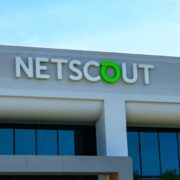There is discussion now in policy circles is the notion of “fair share” and “fair contribution” to broadband networks. Let’s just say what everyone knows: nothing in life is fair. What’s fair is subject to individual interpretation. We will never have shared agreement on fairness.
RELATED: 2023 predictions and 2022 telecom review – Strand Consult
Here is another truism: nothing in life is free. It costs money to build and run networks, whether you are a broadband provider or an online social network. When you use platforms like Facebook, you pay with your personal data. Meta earns revenue by packaging this data for its advertisers, which place ads on Facebook. This is the classic two-sided market model. Facebook would be little to nothing if it only engaged with one side of the market.
Just like social network, broadband providers engage in a two-sided market. They provide subscriptions to consumers on one side with account management and customer service. To content and applications providers on the other side, they offer storage, computation, transfer, migration, networking, delivery, and security. The network will be hobbled if the broadband provider only engages one side of the market.
Networks must use two-sided market models to survive. They must account for costs, find ways to recover them, and engage both sides of the market. This is called cost recovery, the process to recoup the expense of building and running a broadband network with an accurate assessment and attribution of its use. Cost recovery is a basic accounting. Every network enterprise understands this, or it goes out of business.
Strand Consult suggests that proper terminology for the policy discussion is cost recovery, something which can be accurately and independently measured. By contrast, “fair share” and “fair contributions” are subjective.
There is limited transparency in broadband policy. While we know that internet traffic is exploding and costly, we know little about how it impacts any one individual broadband network. Moreover, the data impact will vary by country, technology (fixed vs. mobile), and business model. Moreover, there are deals between large parties as well as technology partnership. These are not public, but if there is to be policy to close the investment gap, policymakers need more information.
Strand Consult moves the policy discussion forward by creating transparency with its reports and analysis about internet data, its costs, and the challenges to broadband cost recovery. Strand Consult reports Middle Mile Economics: How streaming video entertainment undermines the business model for broadband and Netflix v. SK Broadband. The David and Goliath Battle for Broadband Fair Cost Recovery in South Korea provide valuable information from the individual network perspective. These help people understand the relevant issues and prepare question for policy discussions.
Strand Consult’s next broadband report will feature traffic and cost data from 50 rural fiber to the home (FTTH) providers in 24 states in the USA over 4 years. It provides real world insight to the cost and behavior of traffic and the challenge of cost recovery.
We encourage broadband providers worldwide to create similar transparency. If they want cost recovery which is not forthcoming because of distortions in the marketplace, they need to disclose the relevant traffic and cost information for policymakers and the public to assess.
Cost recovery has nothing to do with net neutrality.
Cost recovery is an accounting concept. Net neutrality (NN) is a shifting set of internet regulations. The European Parliament regulation 2015/2120 does not contain the term “net neutrality” but it regulates the relationship between broadband providers and end users on last mile networks with prohibitions on blocking and throttling. These rules say nothing about the other side of the market, the relationship between the broadband provider and the content/application provider, or how to cover costs. Nevertheless, this does not stop opportunists from finding provisions in the rules which are not there, like asserting that a network provider’s cost recovery violates net neutrality. However, there is nothing explicit in the law on this point.
Naturally Big Tech will weaponize regulation to its benefit; after all, Big Tech pushed for these rules. Consider the dispute between Meta and Deutsche Telecom (DT). Meta paid for a set of services from DT for years, but suddenly and inexplicably stopped paying DT, asserting that it didn’t need to pay because of the EU’s net neutrality rules. Again, there is nothing the EU law which gives Meta the free use of DT’s networks. It appears that Meta pulled the plug on its payments because it figured it could get away with the argument and that it could risk a few years of litigation. Meta’s only downside is legal fees and if Meta loses the case, it would probably just have cost of back payments, a pittance for a company which earns $118 billion annually. Naturally Meta will use the lawsuit to engage NN activists, who Meta funds directly or who are funded by major non-profit foundations which own Big Tech stocks like Meta.
Strand Consult is a leading expert on net neutrality policy globally, analyzing the issue for almost two decades with leading academics and economists. See Strand Consult’s library of reports and research notes on net neutrality.
The fallacy that Meta needs net neutrality to innovate
Big Tech platforms offer services that people want; that makes them big. However that does not entitle them to other people’s property for free or to set the rules of the game. Nevertheless, Meta appears to believe it is entitled to this and more.
At the recent Ofcom event, Net neutrality for an evolving internet, Meta claimed it needs net neutrality to innovate. Moreover, Meta wants Ofcom to continue restrictions against “specialised services.” Note that the 5G premise is the enablement of specialised services like autonomous vehicles and remote surgery. Meta also wants Ofcom to approve the business models of innovators. These comments are preposterous.
With its $350 billion market cap, Meta is larger than all but the top 30 countries for gross domestic product (GDP). Meta’s market value puts it on order with the GDP of Hong Kong, South Africa, and Israel. Meta was founded in 2004, a full decade before net neutrality rules were ever adopted in the EU or the US, for that matter. Meta has 3 billion users in more than 150 countries, the most of which have never had net neutrality rules. All the same, Meta persists in the narrative that it is a garage startup in need of regulatory protection.
It is telling that Meta claims it needs rules which prohibit other actors from deploying specialized services or from buying network quality of service guarantees. In its remarks, it became clear that what Meta really wants is to deploy a Metaverse on the “best efforts” internet and not to pay for the use of other’s networks.
The Metaverse is a specialised service.
Specialised services are defined by BEREC as “services other than internet access services which are optimised for specific content, applications or services, or a combination thereof, where the optimisation is necessary in order to meet requirements of the content, applications or services for a specific level of quality.” Meta defines its Metaverse as “virtual 3D spaces where you can socialize, learn, collaborate and play” and further “the future of digital connection…moving beyond 2D screens and into immersive experiences in the metaverse, helping create the next evolution of social technology.”
The Metaverse is nothing if not a specialised service optimised for a virtual 3D experience. He it is not a basic internet application to obtain over “best efforts” connectivity.
Users don’t request Meta’s data.
In the current “fair share” debate, Big Tech claims that users request data and that content and application providers do not “send” data. This a fallacious argument on many levels. Users certainly don’t request ads, but they get them anyway. The same for software updates and other pushed communications. The average user spends but 10 minutes per day on Facebook. Is the broadband provider obliged to provision the entire Facebook platform for every user every single time? That hardly seems reasonable.
It becomes even more grotesque with the Metaverse. Does the user request the entire Metaverse or a just subset? What is the service level agreement to enable the Metaverse? What at the requirements from end users for devices, from Meta, and from broadband providers? How are these costs to be covered? Will these costs be passed on to all users, whether or not they access this virtual 3D world? This seems like something which should be written down, and anything which is written down is a contract to be negotiated.
Learn from South Korea.
Meta’s demands have already been tested in South Korea. Meta demanded South Korean broadband providers install Facebook servers inside their networks for free. The broadband providers balked; after all, Meta’s servers have costs and cannot be repurposed for other content, and hence are inefficient and redundant if housed for free. To force the issue, Facebook shut off some of these servers and re-routed traffic to other countries and operators. This degraded the end user experience, and Korea’s telecom regulator fined Facebook for what it considered as intentional harm. Facebook brought the issue to court and won, but the abuse caught the attention of the Korean Assembly.
The Facebook incident served as an opportunity to introduce the South Korea Service Stabilization Act. The act imposes an obligation on the very largest content providers to consult in advance with the broadband provider to prevent user damage if the very large content provider changes the traffic transmission path and suddenly puts traffic burden on the specific broadband provider’s network.
Going forward, the South Korean Assembly considers updating the Telecommunications Business Act to deter these problems of refusal to supply from US tech companies, to stipulate that companies engage in a good faith negotiation to conclude a contract, and to provide information for traffic data and pricing transparency. The bill has no fee mandates.
Few know the details and nuances of South Korea’s unique broadband regime. Indeed the country ranks as the world’s #1 broadband nation for access, use, and skills and scores highest for FTTH and 5G adoption. It exports Korean content and innovates platforms which compete head on with US Big Tech. Importantly, it has only soft, non-punitive net neutrality rules. Strand Consult’s report Netflix v. SK Broadband. The David and Goliath Battle for Broadband Fair Cost Recovery in South Korea describes the country and its innovative policies.
Time to update broadband policy and business models
Meta announced a $19.2B investment for the Metaverse for 2023. That’s about half of the capex that the world’s mobile operators spend on RAN in a good year. Credit Suisse estimates that Metaverse could become 87 percent out of all internet traffic, some 94 zettabytes (1 trillion gigabytes or GB) by 2032.
Are broadband providers to invest more just because Meta invents a new mousetrap? Maybe it’s a good business if costs can be covered. On the other hand, it could be that Meta is counting on deeply discounted, if not free, use of broadband networks. Just prepare yourself: this giant platform will claim that the broadband provider is getting in the way of its innovation because it does not make its network available for free. This demonstrates Big Tech’s unstated ulterior motive with net neutrality: to reduce, if not eliminate, interconnection costs.
Where are the antitrust authorities?
Herein lies the rub which antitrust authorities have missed…what about the market power that Big Tech uses to muscle its way into broadband networks without paying for the use? That would seem to be a form or market power, the ability of a firm or group to firms to control and maintain a price or condition that would not prevail under competition, the exercise of which leads to reduced output and loss of economic welfare.
Hence, we have Big Tech succeeding to exert political influence for favorable prices and terms for broadband (hence zero priced access, or a deep discounted). This would not be the case in a free, competitive market (e.g. one which allowed prices to fluctuate and one which did not prohibit the deployment of new, competitive products and services the way NN regulation does).
There is a loss of economic value on the order of €300 billion to build out FTTH and 5G in the EU. Moreover reduced output could be measured in the concentration of traffic with a few firms. That is, we might have a different set of internet products and services if traffic was not dominated by a handful of firms. That is, if specialised services were not prohibited by NN regulation, we might have more and different innovation today.
If you are concerned about online streaming video entertainment consuming as much as 90 percent of internet bandwidth today, how will it be to recover costs when even more data is pumped into broadband networks? It seems some policy innovation and business model upgrades are needed before the Metaverse is real.
The business models that apply to internet traffic today were implemented when email was the killer app and data traffic was symmetric. No one, except perhaps Ray Kurzweil, dreamed that the internet would be the place for entertainment and the virtual 3D Metaverse (though cost recovery was probably not on his mind).
There are costs to build and run broadband networks. Strand Consult suggests that the broadband policy discussion needs transparency and accounting, not fairness. Cost recovery is the process to recoup the expense of building and running a broadband network with an accurate assessment and attribution of its use.
To learn more and develop your strategy for broadband fair cost recovery, order Strand Consult’s reports.
- Netflix v. SK Broadband. The David and Goliath Battle for Broadband Fair Cost Recovery in South Korea
- Middle Mile Economics: How streaming video entertainment undermines the business model for broadband
- Understanding Net Neutrality and Stakeholders’ Arguments
For other requests, contact us.

































